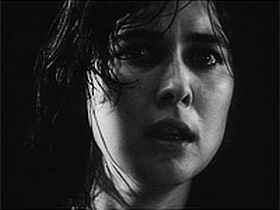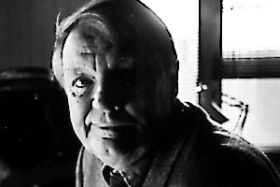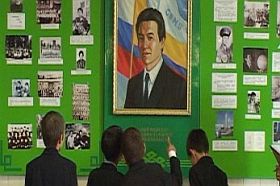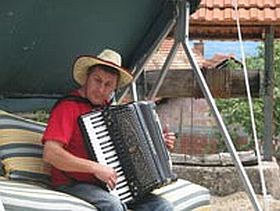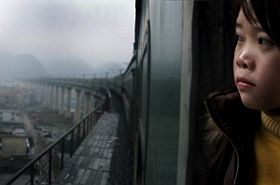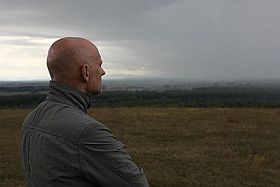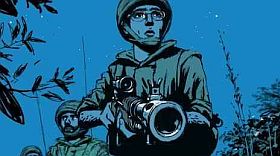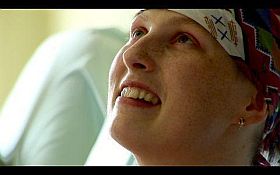


Dokumania: Cities on Speed
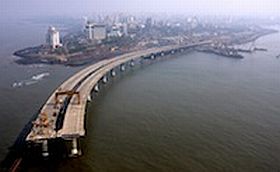
Den danske dokumentarserie, bestående af fire film med hver deres egen stil og ”håndskrift”, bliver nu vist på DR2’s tirsdags-strand ”Dokumania” den 24. august og 31. August klokken 21.30. Jeg skrev en artikel til tidsskriftet DOX om serien, her er et redigeret udsnit, særligt om filmene fra Shanghai og Mumbai (photo), instrueret af henholdsvis Nanna Frank Møller og Camilla Nielsson/Frederik Jacobi
This is an edited text about the Danish documentary series ”Cities on Speed”, which is to be broadcasted on DR’s documentary strand ”Dokumania”:
Characters: The four films are classic in thematic appproach but they are also modern documentaries in the way that the emphasis is put on the character driven formula. Professor Shu and photographer Xu from Shanghai, migrant Yasin, civil servant Mr. Das and Ms. Veena from Mumbai, Mr. Taher in Cairo and Antanas Mockus and Enrique Penalosa from Bogota are all megacity citizens of different background and with different stories. They are all involved in, for some you could say victims of, the mega-problems of the pancake-effect as Mr. Shu in Shanghai
shows with his hands: These cities broaden out more and more like when you make a pancake. What can we do?
Conflicts and Stories: Mr. Shu in the film ”Shanghai/Space” has a vision. He wants to go underground with the roads, wants to create an artificial sunny atmosphere, a human eco-system down under the ground. Which should full of life and birds singing. So it becomes bearable to live over ground where the real sun shines. Mr. Yu, his antagonist, goes around taking photographs of the change that the city takes, he has done that for decades, and he and his wife have to move into a modern flat in one of the skyscrapers. Two different times, one looking forward, one looking back. Two stories and two main characters that do not directly confront each other.
In ”Mumbai/Disconnected” the three characters are narratively connected, to show the disconnection in the city and between them. Yasin and his family wants the new cheap nano car, this is his big wish in life, to prove that he is something and that he can fight the poverty. Mr. Das, the civil servant is part of the leadership of the road development project and has constant problems in fulfilling the requirements of the World Bank that has given a loan to construct a flyover road solution to improve the totally devastating transport situation in a city of soon 20 million people. And last but not least Ms. Veena, very well-off, who fights the plans of the flyover, and does it with passion and clever words, as a senior citizen, as she says, who measures the air pollution and concludes that ”the air is not breathable”. Yasin has a life where he can not afford to think about pollution and city strategies, and he does not get close to Mr. Das and Ms. Veena who meet in a dramatic citizen-city administration discussion.
Issue and Creative Treatment: In terms of the premise above (a commissioned, informative documentary series), the ”Mumbai/Space” takes the prize. It presents the core of the – with an understatement – problem in an attractive way and you never doubt that the directors (Camilla Nielsson and Frederik Jacobi) know what they are talking about. The characters are all personalities who are interesting. You laugh and get angry with them and you have a clear sense of the absurdities in the situation. You like them all, and this is luckily not a black and white film. It has no conclusions and you want the best for Yasin and his family. You wish Mr. Das success in his small office with piles of paper and when he is on inspection tours in the city, and you understand completely why Ms. Veena protests against having more stinking gasoline smell just outside her windows. The questions are a thousand on how to solve – if possible – the problems which are social, political and enviromental. It is more than serious but the filmmakers know that painting it all black would mean that noone would care. Now they tell the stories with fine characters and a light tone that is also due to the wonderful choice of music: The Raymond Scott Quintet, from the end of the 1940es, sounding like British civil propaganda films from the period. A limited speak commentary introduces, and the story goes fine from one character to the next setting up problems and questions that are later on touched upon. Well crafted and good cinematography.
The film by Nanna Frank Møller, “Shanghai/Space” is contrary to the Mumbai and Cairo films less issue-orientated but goes much more artistically deep with the characters, or should I say Character: Mr. Xu, who is portrayed so convincingly beautiful, and who will forever be connected to my memory when the talk comes to Shanghai. An old man who tells his life story through a low-key, melancholic narration connected to his photos taken over a period of decades. These are photos of Shanghai as it was and is when the camera follows him and his wife in the suburbs documenting how the trees and people and houses look like before they disappear. The old China. “The change has come to me”, he says, the family has to move, and again – the camera follows him to diffferent flats that he looks at, up to the point where he finds the one where he wants to be. It is thus more than a presentation of the changing Shanghai, and of the underground plans presented by the (also) charismatic constantly smiling professor Shu. It is a personal drama, a human story that is unfolded about a man, Mr. Xu, who during the cultural revolution was sent to a camp because photography was a bourgeois occupation. The film is full of details like the difficult moving of the photographic magnifier and the choice of cinematographical approach suits perfectly the man with the camera: Non-moving almost still life paintings, one after the other. The whole film is so well mastered that I do not hesitate to say that Nanna Frank Møller, after this third film as director, proves to be one of the big talents in the new generation of Danish documentarians.
